Homemade dish detergent
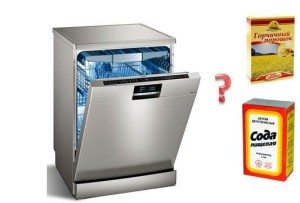 More and more often we are thinking about how to avoid the huge amount of harmful chemicals present in our lives in the form of laundry and dishwashing detergents, gels, sprays and other substances. In addition to health, many are also concerned about the financial side of the issue, because manufacturers, through advertising, sell dishwashing detergents at inflated prices. That is why you involuntarily wonder whether it is possible to make dishwashing detergent with your own hands and use it in the dishwasher, will it be harmless to the machine and people and will be of high quality when washing? Let's try to figure this out.
More and more often we are thinking about how to avoid the huge amount of harmful chemicals present in our lives in the form of laundry and dishwashing detergents, gels, sprays and other substances. In addition to health, many are also concerned about the financial side of the issue, because manufacturers, through advertising, sell dishwashing detergents at inflated prices. That is why you involuntarily wonder whether it is possible to make dishwashing detergent with your own hands and use it in the dishwasher, will it be harmless to the machine and people and will be of high quality when washing? Let's try to figure this out.
Preparing dishwasher detergent
Most dishwashing powders and liquids in the dishwasher consist of surfactants that allow the powder to foam, various acids that corrode grease, and water softeners. In addition, the composition may include bleach, sodium silicate (prevents metal corrosion), enzymes, brighteners, thickeners and other substances that have difficult to pronounce chemical names.
There is debate about the impact of such substances on human health. In small quantities they are actually harmless, some of them can even be found in food or medicine. But is it possible to replace such substances in order to prepare a DIY dishwashing liquid that can be put in the dishwasher? We found several such recipes.
Recipe No. 1. In one glass of hot water you need to dissolve 1 teaspoon of soda ash, and then add 1 teaspoon of hydrogen peroxide.This safe product may not wash burnt pans, but it can be used to wash plates, spoons, forks and other small utensils without harming the dishwasher.
Important! When using such liquid dish detergent, it is imperative to pour salt into the dishwasher.
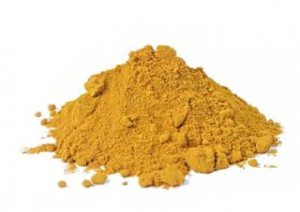 Recipe No. 2. Another detergent can be prepared using mustard. Yes, specifically mustard, which foams well and washes away fat. So, mix half a glass of dry mustard with half a glass of borax and one glass of soda ash. The mixture should be stored in an opaque container in a dark place.
Recipe No. 2. Another detergent can be prepared using mustard. Yes, specifically mustard, which foams well and washes away fat. So, mix half a glass of dry mustard with half a glass of borax and one glass of soda ash. The mixture should be stored in an opaque container in a dark place.
It must be said that some users have a negative attitude towards this recipe, explaining that mustard dissolves very poorly in water, clogs the nozzles in the sprinkler and is not washed off from the dishes. But there are so many people, so many opinions; some people have no problems with such a homemade remedy. By the way, it can be used not only in the dishwasher, but also when washing dishes by hand.
Recipe No. 3. This recipe is more aimed at saving the budget, although the use of surfactants is negligible and will not affect human health, of course, if you are not allergic. Amateur chemists, having thoroughly analyzed the composition of dishwasher powders, came to the conclusion that a simplified and effective powder can be prepared at home. To do this you will need:
- 25g neonol (surfactant),
- 25g sulfanol (surfactant) and
- 950 g of baking soda or soda ash.
The first two substances are commercially available and are necessary for foam formation. Soda is the basis of the composition, since one serving of such powder (30g) contains only 1.5 g of surfactant. It is extremely inconvenient to pour 1.5 g of the substance into the machine, so soda is used as a base.Before us, the cost of such a product had already been calculated, so we will not give calculations, but will give a specific figure; 1 kg of powder will cost about $0.5. As you can see, the savings are obvious. This homemade product is well suited for washing dishes in soft water; in hard water, the use of salt is mandatory.
For your information! Some substances included in the composition of factory powders may not be needed, for example, sodium silicate from rusting a car tank, which is already made of stainless metal.
There are many more homemade recipes, but they are hand-washable, not dishwasher-safe.
DIY tablets
Some craftsmen and lovers of experiments went even further and came up with not just how to make powder at home, but how to prepare tablets. Tablets are the most popular dishwasher detergent, but they are also the most expensive. Marketers do a great job of attributing unusual properties to them. We found recipes on how to make such a pleasure at home for much less money.
To prepare the first recipe you will need:
- 350 g of washing powder, look carefully at its composition, because it is practically no different from dishwasher powder, except that it does not contain soda;
Important! Both laundry detergent and dishwasher powder are needed to remove fats, proteins and other dirt from clothes or dishes. This means that both powders have everything you need.
- 150 g of soda ash, which not only helps to wash away dirt, but also softens water;
- water as a binding element.
So, mix the dry ingredients, adding water little by little, you should get a thick paste.We fill an ice tray with this slurry, and after a couple of hours we take the finished tablets out of it. Please note that the form should not be too large; be guided by the size of store-bought tablets, since the tablet should fit into the dishwasher compartment.
The second recipe, slightly different from the first, you need to take 80 g of baby powder (not so aggressive), for example, “Eared Nanny”, 18 g of soda and 2 g of liquid dishwashing detergent. The dry ingredients are mixed and then dish soap is added. The resulting mass is placed in ice molds until it hardens.

Important! If you use baby powder, then the substances that fight protein stains work at temperatures no higher than 400C, so you need to select the appropriate mode in the dishwasher.
The described recipes for preparing dishwashing tablets at home may not be super environmentally friendly, but they are much cheaper and more economical.
From a safety point of view, you can use this recipe for preparing tablets. You need to take 150g of baking soda, 200g of borax, half a kilo of Epsom salt, which is popularly called magnesia, and then mix all the ingredients well. After this, gradually add concentrated lemon juice or citric acid solution until a thick paste is obtained. Then put the pulp into molds and wait until the mixture hardens. The dishwasher tablets are ready.
Pros and cons of homemade remedies
Judging by the recipes and their composition, it is not difficult to guess all the advantages and disadvantages of homemade dishwashing detergents. Let's list them for complete clarity, and start with the pros:
- the most important advantage is the low cost, one portion of homemade powder will cost about $0.02, if you take $0.02, but the factory one costs on average $0.2 per piece. Even if used separately dishwasher salts, there is a benefit;
- the composition of the home remedy can be changed depending on the needs and characteristics of the dishwasher, adding more or less of a substance;
- when preparing the product with your own hands, you know exactly what you are putting in and what you will use to wash the dishes, and therefore the composition is safer.
Such funds also have disadvantages:
- Firstly, you will have to spend your personal time to prepare the detergent, although 20-30 minutes is not that much.
- Secondly, the powder and tablets do not have a very aesthetic appearance. Although how to look at it and try.
- Thirdly, you will have to experimentally select a portion of such detergent for one washing cycle, it may turn out that its consumption will be a little more than the factory product, but at such a cost it does not matter.
So, whether or not to use dishwashing detergent in the dishwasher is up to you. Read reviews from people on thematic forums, especially since in most cases real people communicate on them, and not marketers from well-known manufacturing companies. Good luck with your experiments!
Interesting:
8 reader comments
Add a comment Cancel reply
Categories
Washing machine repair
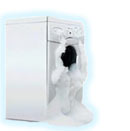

For buyers
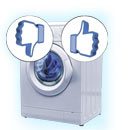
For users
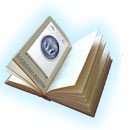
Dishwasher

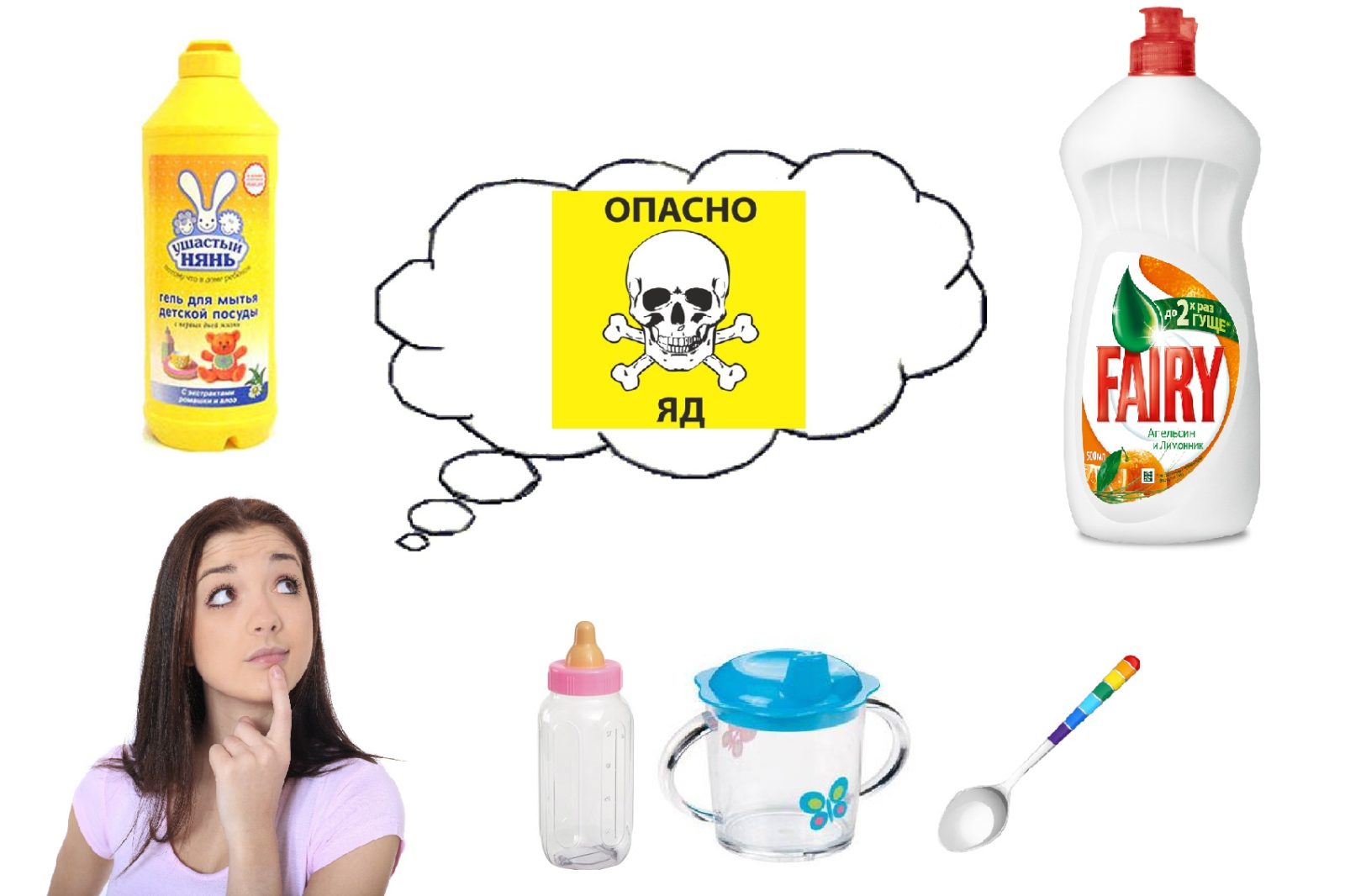
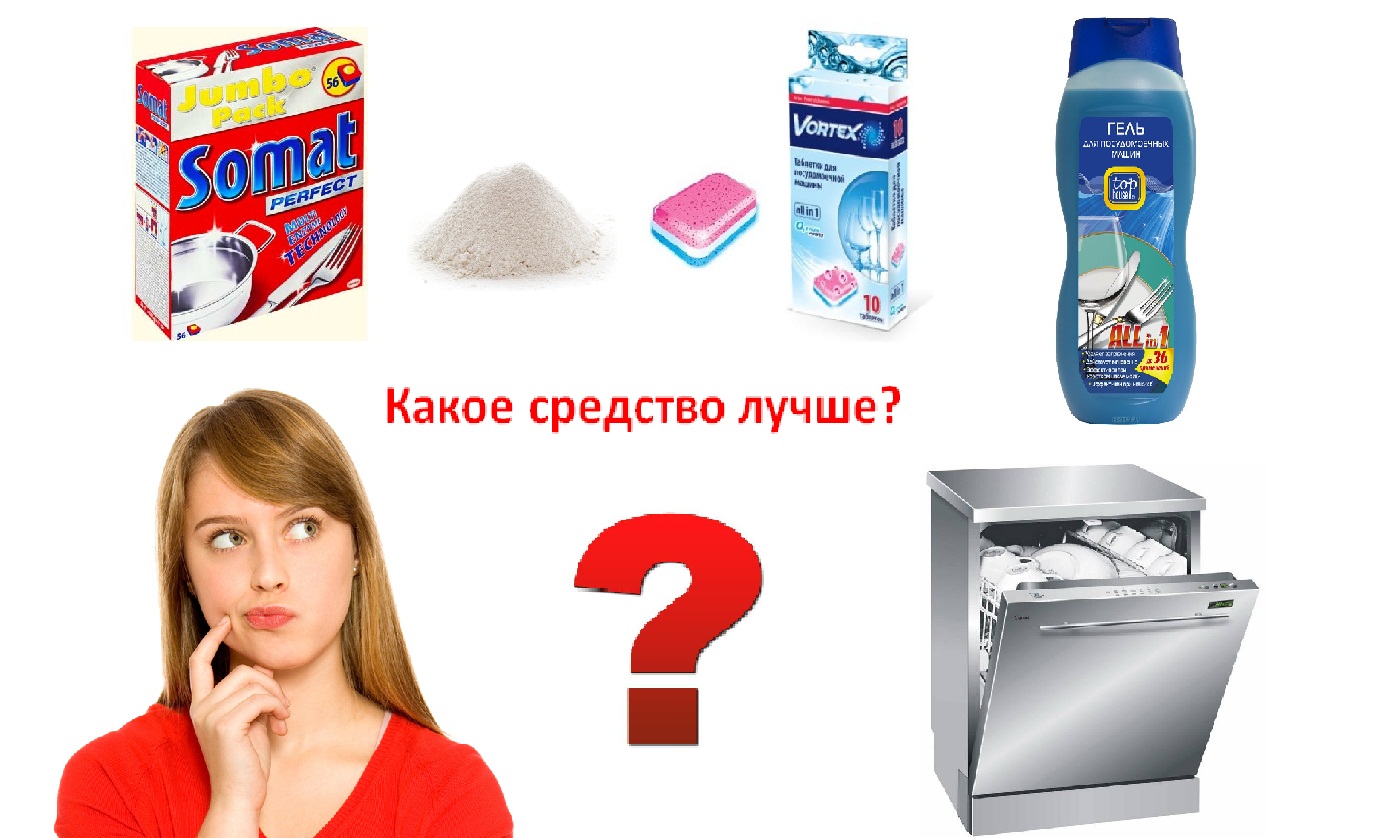
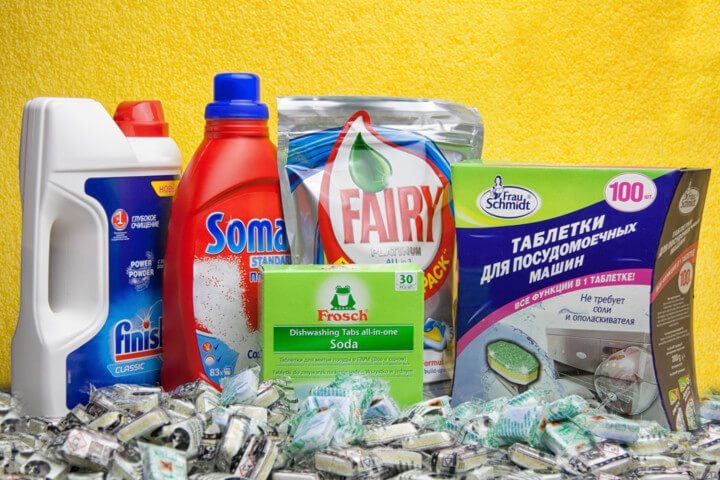
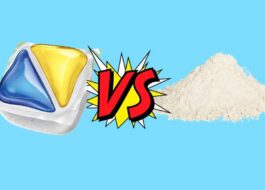
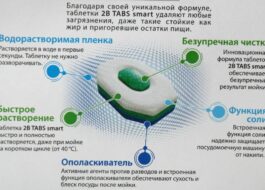

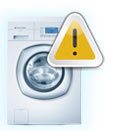
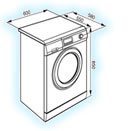
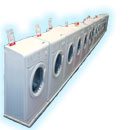
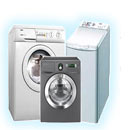
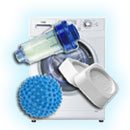

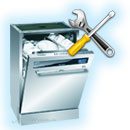
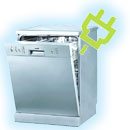
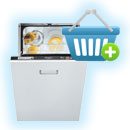
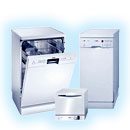
What smell will come from mustard + soda?
There won't be any smell at all.Just don’t open it right away.
Mustard will clog your dishwasher.
Mustard will clog all the injectors and ruin the machine. You can't use it!!!
This is true. The man speaks the matter.
I liked the pill recipe :)
When and what percentage – essence or acetic acid? And in what proportions should vinegar be poured into the dishwasher for rinsing dishes?
I don’t remember about sulfanol. But neonol is prohibited for use for washing dishes, since when it is heated, one of the decomposition products is phenol, which is recognized as a carcinogen.